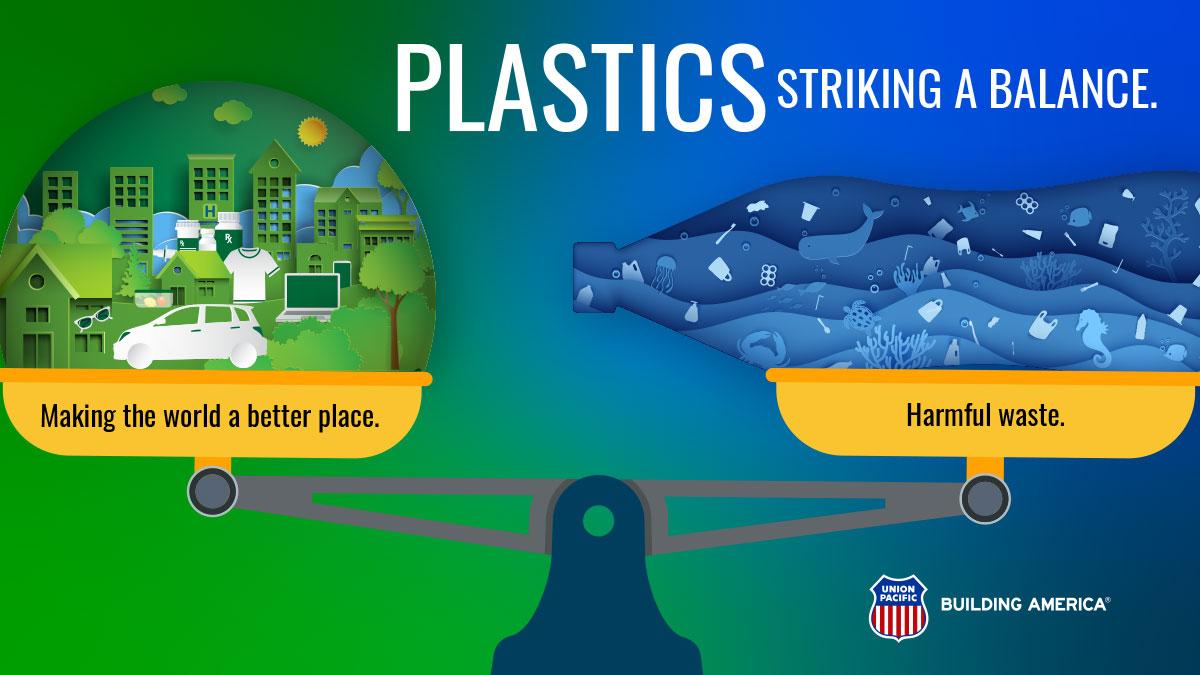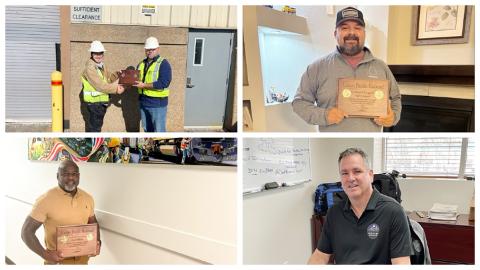Plastics producers have meaningful sustainability goals. Here’s how they’re pushing the needle forward – and using transportation to make a difference.
Subscribe to Inside Track
Whether we consciously realize it or not, plastics are an inextricable part of our daily lives. Stop for a moment to think of some of the common items you use every day that are made of plastic: a water bottle, a grocery bag, the container you store leftovers in. And then there are the less obvious but still common uses, like parts for computers and cars and hospital equipment, or your glasses, your cell phone and even your clothing. While it’s clear plastics play an important role in our everyday lives, what people might not know is that plastics actually play a role in improving sustainability — as do the companies that produce them. To demonstrate how, two plastics producers, Dow and Braskem, share how they’re envisioning — and creating — a more sustainable future for the planet.
The Role of Plastics in Sustainability
How do plastics play a role in creating a greener world? Geoffrey Inch, Circular Economy & Sustainability Director, North America for Braskem, the largest petrochemical company in the Americas and the world's leading biopolymer producer, explains it as such: "Innovations in plastics are essential for enabling society to raise living standards and to advance sustainability through products that avoid waste and increase efficiency. For this reason, plastics are widely recognized as playing a crucial role in delivering a more sustainable future," he said. "Along with innovation, our Circular Economy Strategy will continue to aggressively progress projects in mechanical and advanced molecular recycling, and we are working with our recycling partners to address the issue of plastic waste."
Jacqueline Faseler, Global Director Supply Chain Sustainability and Compliance at materials science company Dow, one of the three largest materials science companies in the world, says there is a careful balance between using plastic to make the world a better place and keeping a close eye on harmful plastic waste.
"We strongly believe that plastic is an indispensable material for the world’s consumers and a vital part of our journey toward a low-carbon future. Lightweight plastic provides growing populations around the world with greater access to fresh foods, safe drinking water and medicines. It dramatically reduces food spoilage and waste while also providing hygienic materials for the health care industry. That translates directly into approximately four times lower environmental cost in the supply chain plus a better, more affordable, and healthier quality of life for billions of people," she said. "At the same time, we are facing an unacceptable consequence: Too much plastic is lost to waste and is entering our oceans, clogging up our rivers, and polluting our natural environment. This cannot continue. At Dow, we’re working with our partners to eliminate this plastic waste."
Read more about how Dow and Braskem are working toward a greener future in Track Record.






